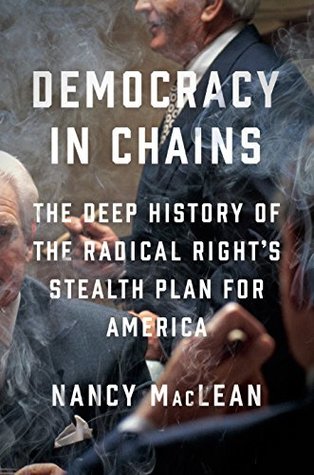It was uncanny how well young Jim Buchanan’s notions of individual efficacy, group power, and government overreach fit with the teachings of the economics faculty of the University of Chicago. The school had been founded at the turn of the century by the oil industry magnate John D. Rockefeller and in its early years earned renown as a laboratory for social science in the service of progressive reform. But by 1946, when a twenty-seven-year-old Buchanan enrolled, the school’s president boasted to donors of having “the most conservative economics department in the world.”
Welcome back. Just a moment while we sign you in to your Goodreads account.


